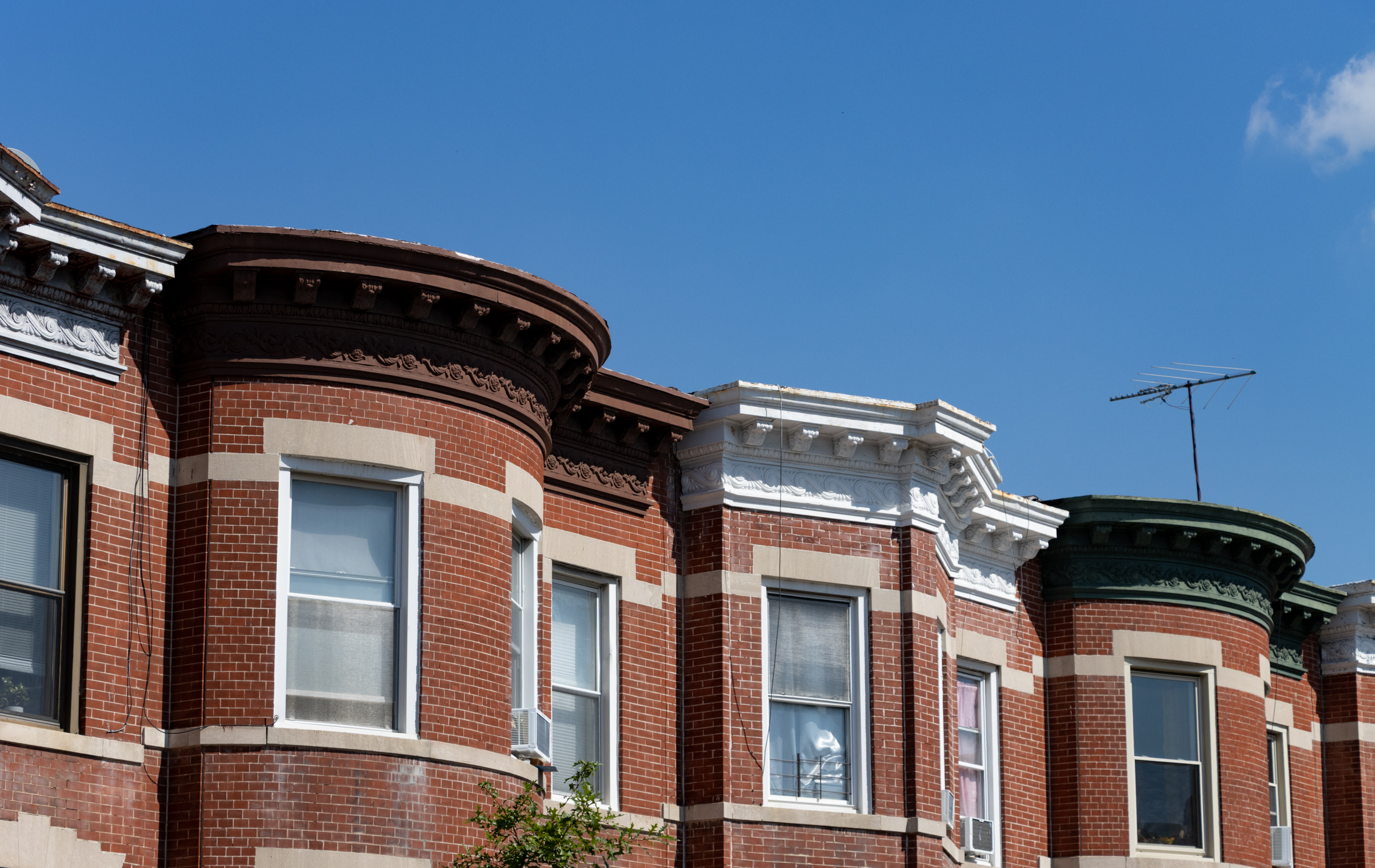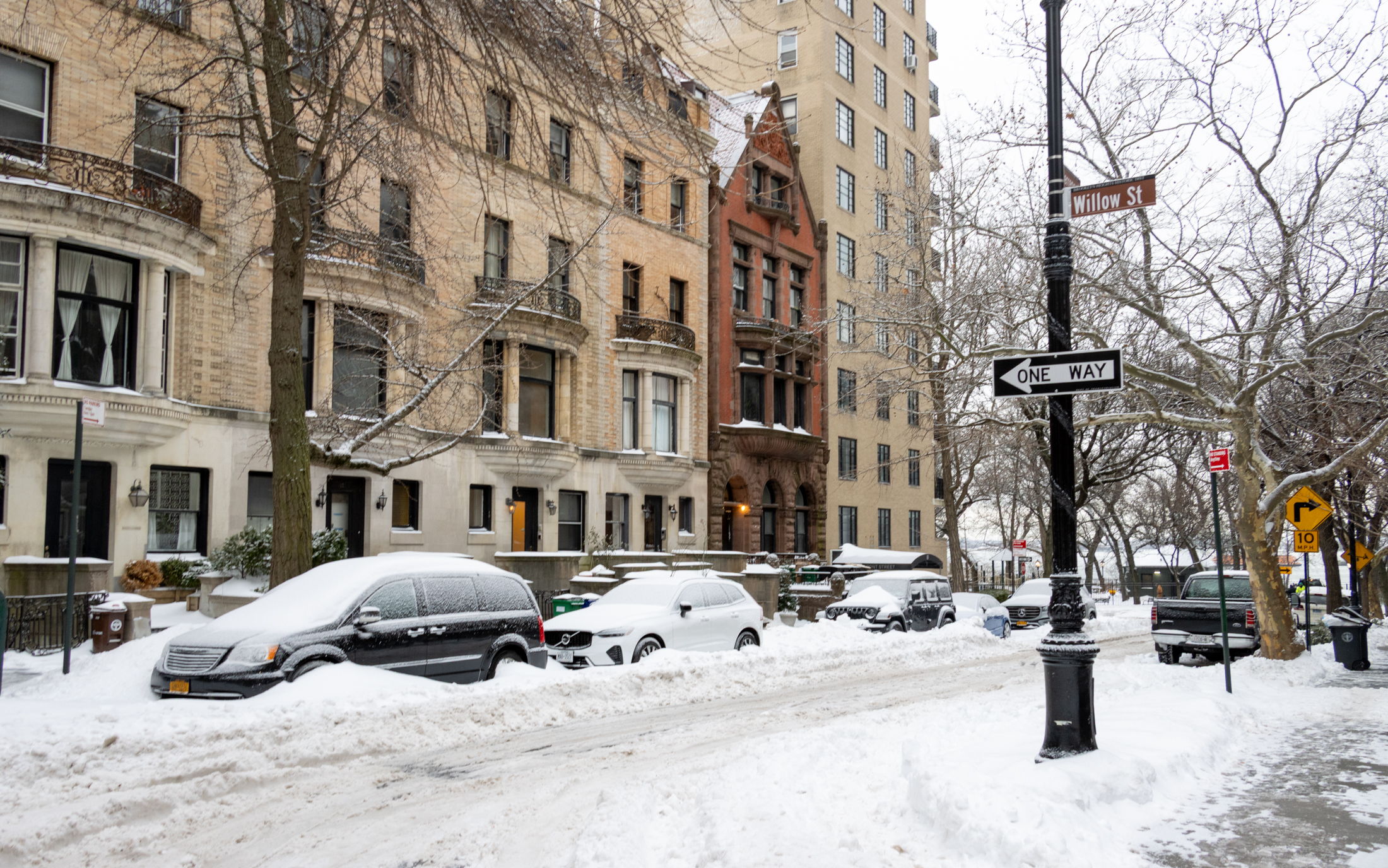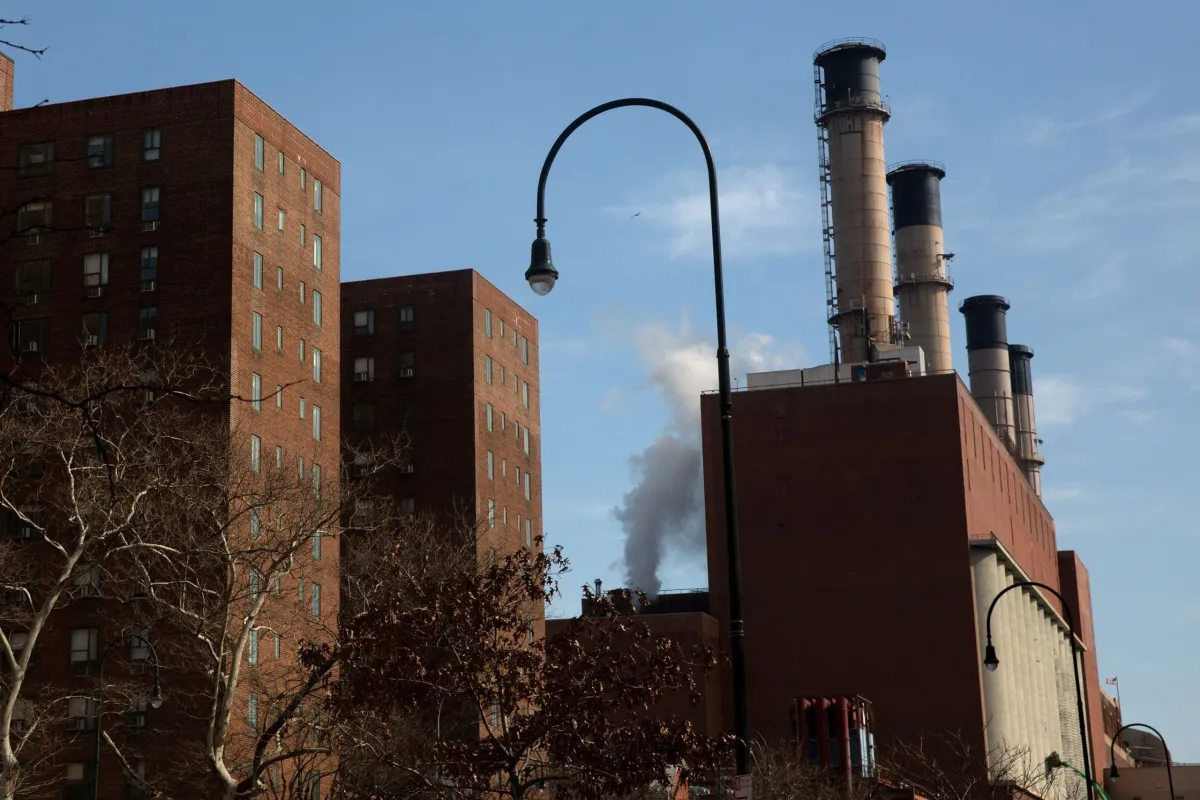Trump Public Housing Time Limits Could Displace 300,000 NYC Residents, Internal Analysis Finds
An assessment by the New York City Housing Authority projects dire consequences of the president’s proposal to allow just two years of rental assistance to “able-bodied” adults.

A George Washington Houses resident in East Harlem displays their patriotism, February 10, 2025. Photo by Ben Fractenberg/THE CITY
By Greg B. Smith
This article was originally published on May 30 at 9:08 a.m. EDT by THE CITY
A Trump administration plan to set time limits on how long “able-bodied” tenants can receive federal rental assistance would have a devastating effect on the New York City Housing Authority (NYCHA), an internal analysis by the authority has found.
NYCHA officials have to date said little publicly about the potential ramifications of Trump’s proposed changes on the nation’s biggest public housing authority. But U.S. Rep. Ritchie Torres (a Democrat repping the Bronx) told THE CITY that the authority’s management has provided him with a stunning estimate on the impact of the time limit proposal: More than 300,000 residents in public housing and apartments privately rented with public aid could lose their homes.
In its preliminary budget for fiscal year 2026, released early this month, the Trump administration proposed a cut of 43 percent to all federal rental assistance, including for public housing and the program that subsidizes rent paid to private-sector landlords, known as Section 8.
The proposal also said the U.S. Department of Housing & Urban Development would impose a new cap on how long households that include what HUD described as “able-bodied adults” could receive federal assistance. After two years, HUD would terminate the benefit. HUD noted the cap would not apply to senior citizens or tenants with disabilities.
Based on that vague description, NYCHA calculated that 316,000 of its residents residing in public housing and in Section 8 private landlord properties NYCHA oversees are under the age of 62 and do not report a disability. That estimate accounts for 61 percent of the tenants receiving rental assistance via NYCHA.
“NYCHA takes the president’s proposal very seriously,” Barbara Brancaccio, NYCHA’s chief communications officer. “However, in order for this provision to take effect, it would require multi-committee approval [in Congress] and eventually 60 votes in the Senate.”
HUD’s press office did not answer THE CITY’s questions about what effect the proposed time limit on rental assistance would have, instead referring to a statement HUD Secretary Scott Turner made when Trump released his budget noting that it shifts much of the costs from the federal government to the states.
“It creates the opportunity for greater partnership and collaboration across levels of government by requiring states and localities to have skin in the game and carefully consider how their policies hinder or advance goals of self-sufficiency and economic prosperity,” Turner stated.
In a letter to Turner Thursday, Torres castigated the Trump administration’s approach to subsidized housing, starting with the recent announcement that the administration intends to let the Emergency Housing Voucher program initiated during the pandemic expire, possibly as early as this year.

Torres said his Bronx-based Congressional district has the highest number of emergency vouchers of any district in the state — more than 2,200, or one quarter of all emergency vouchers in the state of New York.
Trump’s plan to drastically cut federal rental assistance and impose the “able-bodied adult” time limits would “remove or radically restrict rental assistance for the most vulnerable households,” Torres wrote to the HUD secretary.
Torres predicted between the proposed cuts and the imposition of the two-year cap, tens of thousands of subsidized tenants could be displaced — a calamity that would ultimately have a ripple effect on the housing market.
The cuts could “trigger prolonged housing court litigation, widespread nonpayment of rent, and a cascade of loan delinquencies throughout the multi-family housing market,” Torres warned Turner.
A wave of loan defaults would, in turn, destabilize both the banks that provide the loans and the government-sponsored enterprises that secure them, Fannie Mae and Freddie Mae, Torres warned — noting that this could be particularly disastrous because Trump says he’s considering removing government backing and taking them public.
On Thursday Trump clarified his statement to say both Fannie and Freddie would retain government backing.
Related Stories
- Trump Budget Proposal Could Devastate New York’s Housing Landscape
- What Trump’s Big Budget Cuts Could Mean for New York
- Wind Power Projects Slam Into Trump Permit Pause
Email tips@brownstoner.com with further comments, questions or tips. Follow Brownstoner on X and Instagram, and like us on Facebook.





What's Your Take? Leave a Comment